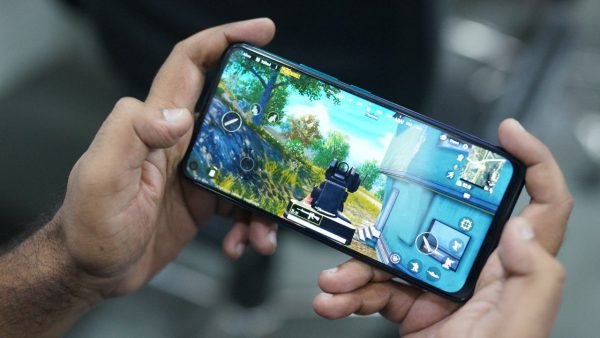Mobile gaming has been getting popular day by day and attracting huge masses now. In the early times, it was a niche product targeting only financially stronger youth. However, now there is an abundance of reasonably priced and free mobile games to choose from. Moreover, the global mobile gaming industry is estimated to be worth over $152 billion by the end of 2020.
Not only this, but the mobile gaming industry also grows by 10.2% every year. On the downside, this multi-billion-dollar industry gets misunderstood by the public. So, today we will try to overcome the most prominent misconceptions about mobile gaming.

Mobile gaming is only for casual gaming
It is a common misconception that mobile gaming is specifically for casual gamers. In fact, the competitive eSports scene of mobile gaming has been growing considerably, particularly for MOBA titles like Mobile Legends, Fortnite, PUBG Mobile, and Call of Duty: Mobile.
The gameplay may be stripped down and simplified compared to PC and console titles, but that doesn’t make a competitive nature any less intense.
We should also consider that mobile gaming isn’t just Farmville and Mobile Legends, but also appeals to niche gaming categories. Poker or slot games, for example, can be seen either as a casual weekend thing with your buddies, or something has taken very seriously, where hardcore players bet very strategically to maximize their edge. If you play any kind of online casino games, such as at Casumo live casino, you’ll likely find both types of players.
Mobile gaming is full of freemium pay-to-win titles
Like any other business, the objective of the mobile gaming industry is not just to entertain people, but also to generate maximum revenue. This is done in two ways- in app purchases and ads. It’s true that most mobile games contain in-app purchases, however, a distinction should be made between cosmetics and blatant “pay to win” mechanics.
“Pay to win” implies that if you spend money, you will have a significant advantage over other players, such as having much stronger gear, or Godlike abilities that make you nearly impossible to defeat.
While those types of mechanics do exist in some mobile games, they also exist in PC games as well, and aren’t very common. Mobile games are more likely to sell you on additional features, character customization options, or faster progression.
It should be noted that paying for “faster progression” isn’t necessarily “pay to win”. Even though you’re paying to advance faster in level than non-paying players, there is a threshold where you’ll be against players of similar level and equipment, and skill becomes much more important than your credit card.
Mobile gaming apps are a security threat
Many people believe that mobile gaming apps are not secure and pose a threat to your phone’s privacy and security. This is because there have been valid cases where the gamer’s security has been violated, or security issues in the past with the Google Play Store.
It’s true that many apps with shady data-scraping APIs built in are passed through the Google Play Store, but overall it’s not as rampant or nefarious as you might believe. If you’re truly concerned about your privacy than you probably shouldn’t even own a smartphone, but for the most part, data-collection is just how Google and ad networks know what kinds of ads to display to you based on your interests.
It’s possible to obtain malware through infected apps, but the idea of a vast global government conspiracy to blackmail you into obedience through your search history is kind of laughable. PornHub is the 8th most visited website in the world. Your search history is a speck of dust in the universe.
You can also take advantage of Android’s built-in security measures and deny access privileges to apps you don’t feel comfortable with.
Mobile gaming is addictive
Occasionally in the media, video games are labeled as being “addictive” and “unhealthy”, particularly for young children (but even adults). It might not help that some games even market themselves as having “the most addictive gameplay!”.
However, intense concentration on gameplay is not an addiction at all. You can be serious about gaming, like any other hobby, and put a lot of effort into it, without it being an “addiction”. An addiction is something that actually negatively interferes with your life, like, your work and social life begin to suffer as a result of your addiction.
Mobile games provide a sense of achievement and pass the time, just like any other hobby. Simply because others don’t see it as “time spent productively”, doesn’t make gaming any less worthwhile. We can’t all be chasing stars and building electric cars.
PC/Console is superior to mobile gaming
When it comes to superior graphics and a hardcore gaming experience, PC and consoles are better than mobile gaming. However, most of the general public is more interested in playing casual games rather than hardcore games.
This is the reason that mobile gaming has effectively managed to reduce PC and consoles sales. In fact, over 45% of the entire global gaming market is from mobile games.
Conclusively, the main distinguishing factor between console and mobile gaming is the hardcore or casual loving audience. Which makes it impossible to make either superior.
Mobile games are just for children
A final big misconception of mobile games is that, due to the casual nature of some of the most popular mobile games, mobile gaming primarily appeals to younger children.
However, according to statistics, the average age of mobile gamers is 36.3 years old. In fact, the 16 – 24 age group is only 14.2% of mobile gaming demographics.






